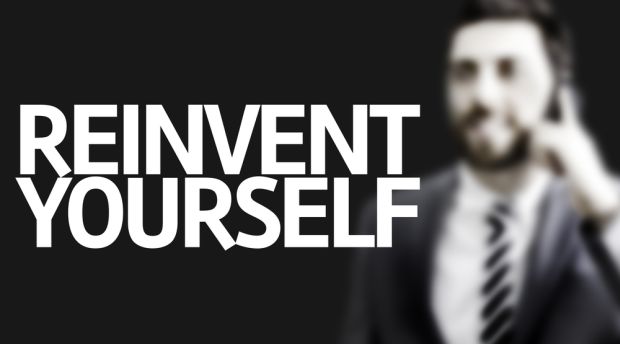How to Reinvent Your Career and Repackage Yourself for a New Career
Post Views 0These days career transition professionals notice that more job seekers are talking about reinventing themselves. Perhaps their job hunt has stalled or they feel stuck in their careers . . . and they now want to do something entirely different. Sometimes such redirection or re-packaging is a worthwhile strategy, but it’s not for everyone.
Here’s a typical case. Recently I met with an ambitious corporate manager who for years had been on the fast track in his industry. He had opportunities for further advancement, but wasn’t satisfied. The manager had assessed his personal and career goals and realized his work no longer challenged him. In fact, the manager felt he wasn’t in the right position, or even the right industry and instead wanted to make a major career change. Nevertheless, he feared he’d be forced to take a backward career step. After all, conceded the manager, he didn’t have the experience necessary to compete in a different industry. Nevertheless, he was determined to face the challenge. So we encouraged him to explore his options imaginatively and creatively, a process that’s still under way.
An example of a successful reinvention is a senior vice president and general manager I know. Once a senior PR executive for a healthcare organization, this person saw the opportunity to gain experience in another niche and acted on it. Too young to be a Baby Boomer and too old to be a Gen-Xer, she says she’s learned from both these generations and found she’s able to accept change, be flexible and enjoy stability, even though it’s not a job requirement. As she explained it to me, “We’re more flexible than other generations and are often less demanding. Our ‘Gen-Boomer’ generation makes things happen and doesn’t feel deserving or expect things.”
This positive attitude has served her well as her business development skills landed her a marketing position with a major national accounting firm. “I had only worked in the healthcare industry until a friend presented me to this company,” she said. “I never misrepresented myself or my qualifications. Instead, I sold them on what I could do.” In order to move to her current position she had to market herself for a purely business development position in yet another professional services organization in yet another field. “The key is not only having the ability to do the job,” she said, “but demonstrating an infectious passion to whomever is on the other side of the table.”
But for every successful reinvention, there are several failures. At the outset of a job search, as many as 20% feel they’re ready for something new, or at least for a total repackaging of their skills and experience. As one long-time career counselor put it, “Maybe half of employed people are unhappy in their jobs, so when they’re forced to have the opportunity to rethink their careers it’s understandable that for many the first instinct is to get away from their old business or specialization.” Within a few weeks, however, half of them get practical, move back to their comfort zone and pursue employment in their existing field or industry where they have a track record. So even though reinvention has become a noticeable trend among job seekers fewer than 10% are able to carry it off.
Before you set out on the path of reinvention ask yourself a series of questions.
- What’s prompting you to change fields or industries?
- Is it something you want to escape from, or is it a wish to do something else that you really want to do? What values are guiding you?
- Is it compensation, status, lifestyle, family or what?
Defining what’s key will help you focus your search.
So how do people successfully reinvent or repackage themselves? While there’s no single way to do it, there are some things to keep in mind. At the outset of your job search develop a plan to market yourself. Get a focus on your new objective and choose the industry you wish to target. Reinvention won’t work without a cohesive and clear plan. If you don’t have one you’ll be giving off mixed messages and splitting your search time among too many options.
At the same time, continue to search in your current field, but start to look for opportunities in a new industry or area. Redo your resume so you have a version that’s not so industry-specific. Get rid of jargon and job descriptions, and instead stress your understanding of broader business issues, such as finance, changing markets, project management and so on. Your new resume is critically important. Keep your current industry resume handy just in case, but develop a strong one for your new industry.
- Learn all you can about your target field or industry. Get as much advice as you can from executives in the area.
- Read the trade publications, access key web sites and get familiar with the relevant trade groups and their shows. Identify the leading companies, major industry executives and power brokers.
- Read the job postings so you’re familiar with the key words, phrases and skills cited.
- Identify which of your skills and capabilities are transferable to the target field.
- Do a new positioning statement. Since you’re changing fields, it should emphasize functional expertise, not industry-specific experience.
- Be prepared to hit a few bumps. Prospective employers will probe hard to see if your knowledge and skills prepare you for the new industry.
Career reinvention isn’t for everyone, and it’s certainly not a simple solution to a stalled job search. As an alternative many job seekers are making sound lateral moves, such as seeking a different role in their present industry or field. They have found new employment with a vendor, professional or trade association, government agency, industry consultant or ad agency. They’re keeping their careers on track and finding work that’s more rewarding and challenging.
Always keep in mind that most people, in the end, will find similar jobs in their present industry or function. Just the same, thinking outside the box can be a helpful exercise.
How to Reinvent Your Career and Repackage Yourself for a New Career by Granted Contributor



 Top 10 Tips for Succeeding at a New Job
Top 10 Tips for Succeeding at a New Job  Post-Grad Anxiety Can Make the Transition to Career Life Difficult
Post-Grad Anxiety Can Make the Transition to Career Life Difficult  The Mental Phases of a Career Change
The Mental Phases of a Career Change  How to Return Home After Working Abroad
How to Return Home After Working Abroad  8 Rules for Your Resignation Letter
8 Rules for Your Resignation Letter  Returning to Work after Retirement
Returning to Work after Retirement  How to Change Careers after the Age of 50
How to Change Careers after the Age of 50  Don’t Turn Your Two-Week Notice in Just Yet
Don’t Turn Your Two-Week Notice in Just Yet